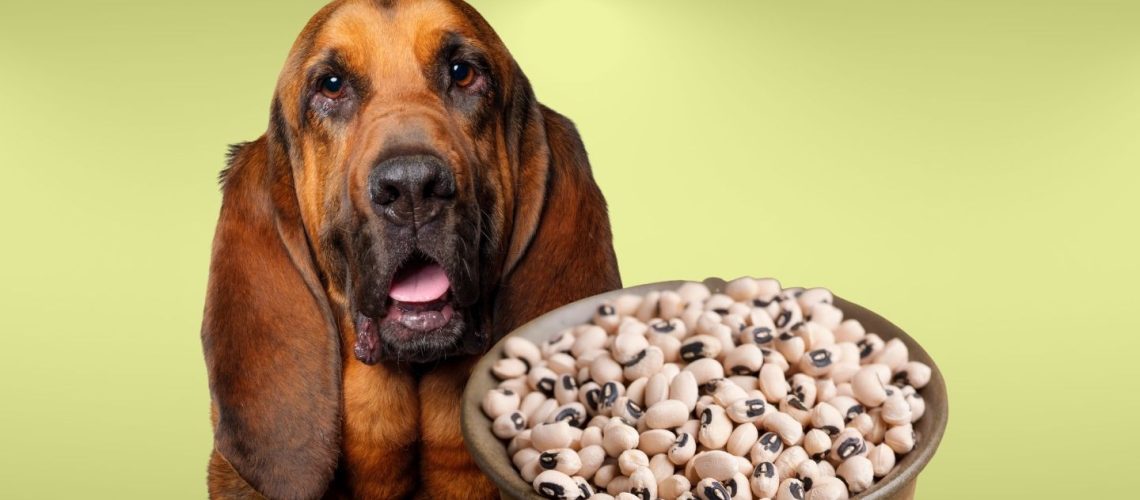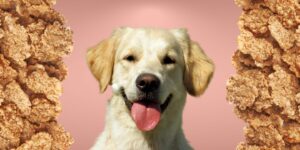Yes, dogs can eat black-eyed peas in moderation as an occasional treat. However, it is important to feed them in small portions and to remove any potentially harmful seasonings or additives. Black-eyed peas are a good source of protein, fiber, and vitamins for dogs, but they should not be fed in large quantities due to their high carbohydrate content.
Nutritional Benefits of Black-Eyed Peas for Dogs
Black-eyed peas offer several nutritional benefits for dogs, such as:
Protein Content and Its Benefits
Black-eyed peas are a good source of protein, which is essential for your dog's muscle development and overall health. Protein also helps support the immune system and can provide energy to your dog.
Fiber for Digestive Health
Fiber is important for your dog's digestive health, and black-eyed peas contain a significant amount of it. Fiber can help prevent constipation and maintain regular bowel movements.
Vitamins and Minerals in Black-Eyed Peas
Black-eyed peas are packed with essential vitamins and minerals, such as:
Vitamin A for Eye Health
Vitamin A plays a crucial role in maintaining healthy vision for your dog and supports the immune system.
Vitamin B for Metabolic Function
Vitamin B is essential for metabolism, nervous system function, and red blood cell maintenance in your dog's body.
Vitamin K for Blood Clotting
Vitamin K is crucial for normal blood clotting, which can help keep your dog's wounds heal properly.
Iron for Red Blood Cell Production
Iron is necessary for the production of red blood cells, which carry oxygen throughout your dog's body.
Magnesium for Bone Health
Magnesium helps maintain healthy bones and muscle function in your dog.
Potential Risks and Precautions
Feeding black-eyed peas to your dog does come with some risks and precautions, including:
Choking Hazard and Digestion
Hard or undercooked black-eyed peas can be difficult for dogs to chew and digest, potentially leading to choking or gastrointestinal distress. Make sure to cook the peas until they are soft and easy to chew.
Carbohydrate Content and Weight Gain
Black-eyed peas are high in carbohydrates, which can contribute to weight gain in dogs. Feed them in moderation to prevent obesity and other health issues.
Allergies and Sensitivities
Some dogs may have allergies or sensitivities to legumes, including black-eyed peas. If your dog shows signs of an allergic reaction, discontinue feeding them black-eyed peas and consult your veterinarian.
Harmful Additives and Seasonings to Avoid
Avoid adding any seasonings, spices, or additives, such as onions, garlic, and spicy flavors, as they can cause gastrointestinal distress in dogs.
Preparing Black-Eyed Peas for Dogs
When preparing black-eyed peas for your dog, you can use the following cooking methods:
Boiling
Boil the black-eyed peas until they are soft and easy to chew.
Steaming
Steam the black-eyed peas to preserve their nutrients while ensuring they become tender.
Baking
Bake the peas until they are soft, but be mindful that the additional cooking time can potentially reduce some nutrients.
Let the black-eyed peas cool before feeding them to your dog and store any leftovers in the refrigerator.
Alternatives to Black-Eyed Peas
If you're looking for other legumes or vegetables to feed your dog, here are some alternatives:
Green Beans
Green beans are high in vitamins and low in calories, making them an ideal treat for dogs.
Lentils
Lentils are another excellent source of protein and fiber for dogs.
Chickpeas
Chickpeas, also known as garbanzo beans, contain protein, fiber, and vitamins that dogs can benefit from.
Carrots
Carrots are a nutritious, low-calorie snack that dogs often love.
Sweet Potatoes
Sweet potatoes are a great source of vitamins and minerals, as well as being naturally sweet and tasty for dogs.
Peas
Peas, such as green peas or sugar snap peas, are high in vitamins A and K and offer a low-calorie treat option for dogs.
Frequently Asked Questions
Can dogs eat canned black-eyed peas?
Canned black-eyed peas often contain added salt, so it's better to feed your dog fresh, cooked black-eyed peas without added seasonings or additives.
Can I feed my dog raw black-eyed peas?
It is not recommended to feed your dog raw black-eyed peas, as they can be difficult to digest and may pose a choking hazard. Cooked peas are a safer option.
How often can I feed my dog black-eyed peas?
Feed your dog black-eyed peas in moderation, as an occasional treat to avoid excessive carbohydrate intake.
Are black-eyed peas safe for puppies?
Black-eyed peas are safe for puppies in moderation, just like adult dogs. However, consult your vet before introducing any new foods to your puppy's diet.
Summary
When feeding black-eyed peas to dogs, remember these essential points:
- Dogs can eat black-eyed peas in moderation as an occasional treat.
- Cook the peas thoroughly and avoid any harmful additives or seasonings.
- Consult your vet if you're unsure about feeding black-eyed peas to your dog.
In conclusion, dogs can enjoy the nutritional benefits of black-eyed peas when fed in moderation and without any harmful additives or seasonings. Keep portion sizes small and provide a balanced diet, and your dog can benefit from this tasty and nutritious treat.











